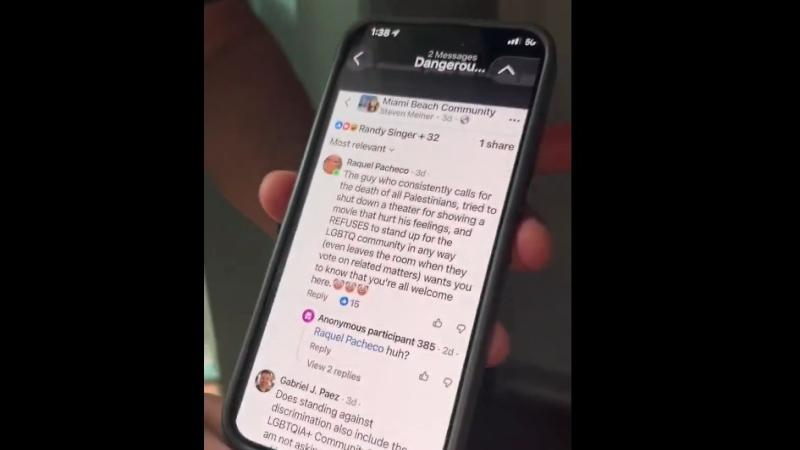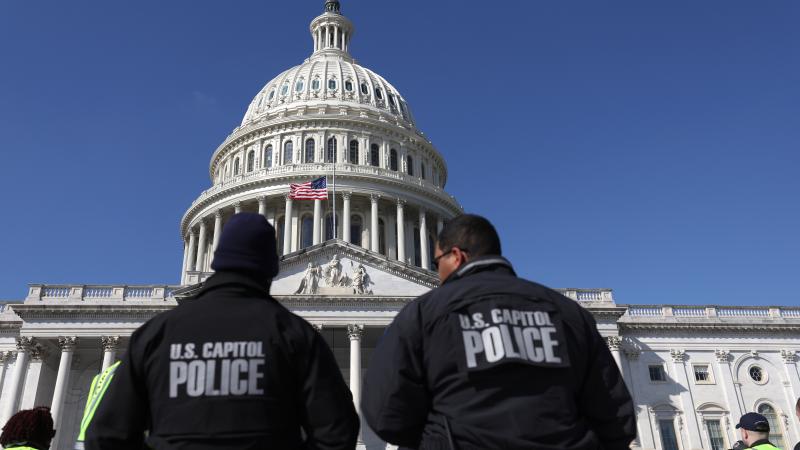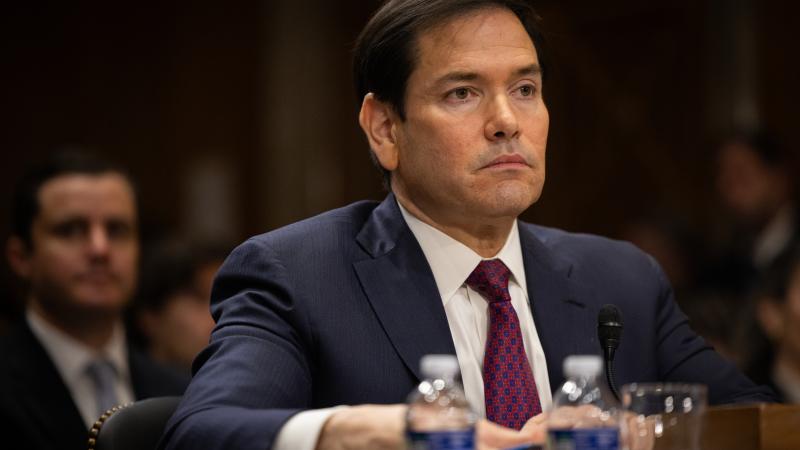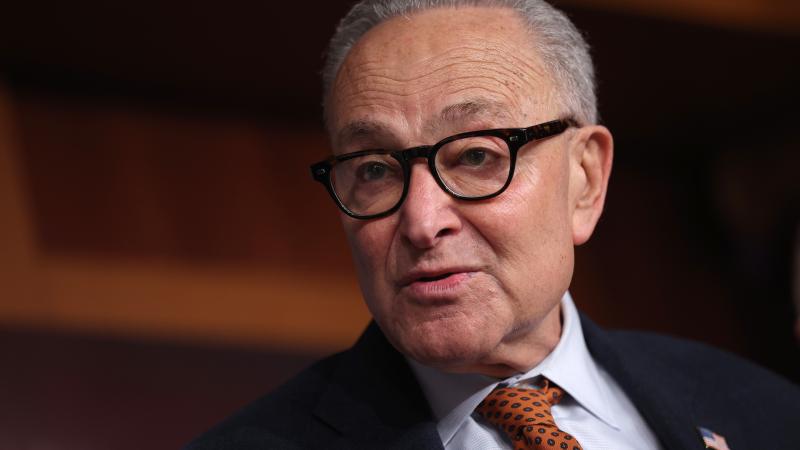Key group in government censorship project boasted of suppressing Trump message, defunding newsrooms
Democracy Dies in Darkness? A new memo from the taxpayer-funded National Endowment for Democracy shows grantee Global Disinformation Index viewed silencing Trump and toxifying certain news outlets to reduce their revenues as a win. The policy spread to other federal programs.
A nonprofit that received federal funding to develop censorship strategies boasted in progress reports to the National Endowment for Democracy (NED) that early tactics had suppressed the reach of Donald Trump's messaging and reduced advertising by $100 million to news outlets it deemed to be "disinformation" spreaders, according to newly disclosed memos.
The Global Disinformation Index (GDI) was awarded grants through its U.S.-based affiliate, AN Foundation, from NED, a congressionally chartered and taxpayer-funded agency in Washington. The grants were paid to develop strategies on how to fight perceived disinformation in foreign countries.
But GDI's quarterly progress reports often explicitly boasted about the impact of censorship efforts on American targets and audiences.
For instance, it touted to the NED that it had created a report called "Bankrolling Bigotry: An Overview of the Online Funding Strategies of American Hate Groups" that relied heavily on research from the far-left Southern Poverty Law Center to warn that "hatred is surging across the United States, threatening the safety, security and wellbeing of minority communities."
You can read that report here:
Demonetization: Trying to bankrupt news outlets
Similarly, it boasted about its recommended tactics. Specifically, urging advertisers to choke revenue to news outlets that the index deemed to spread disinformation had an enormous early impact, it wrote.
"This period, we turned our minds to evaluation of GDI's impact; specifically, to how we might measure the demonetization achieved through uptake of our risk ratings by brands and/or ad tech platforms," GDI wrote. Demonetization refers to the practice of pressuring advertisers and gaming search engines in order to reduce, or even remove, earnings from YouTube and other social media platforms relied upon by publishers.
Partnering with a "trusted ad tech analytics organization," GDI estimated that during a 15-month period, from March 2020 to September 2021, the number of bids sent to the approximately 1,200 sites listed on its "Dynamic Exclusion List" was halved, leading to an estimated $100 million lost in collective revenue, the memo says.
You can read GDI's grant agreement with NED and quarterly narrative reports below:
GDI's own index identified 10 American news media outlets as superspreaders of disinformation, almost all of them conservative voices, like The New York Post, The Daily Wire, Newsmax, The Federalist, and The Blaze, among others. The memos mentioned that, combined, the outlets identified by the index lost advertising, but did not identify them by name.
Michael Chamberlain, head of the nonprofit watchdog Protect the Public's Trust, which obtained the documents under the Freedom of Information Act, said the memos proved that while NED's effort was billed as targeting overseas propaganda, it ended up routinely focusing on suppressing American speech, mostly right-leaning or conservative in nature.
“The Censorship Industrial Complex was hard at work early in this decade, and they were using taxpayer dollars to do so," Chamberlain told Just the News in an interview. "They effectively gave funding to GDI to look at disinformation, misinformation in foreign countries, such as countries in Africa, Asia, Latin America—Nigeria, India, Malaysia, Mexico are mentioned specifically in the grant application."
Selectively suppressing political speech
Perhaps its most stark admission came when it cited a New York Times article on how the censorship industry's effort to shut down Trump's social media presence had undercut the former and future president's reach and amplification. GDI bragged in the progress report about the “wider context” of its work that included research on Donald Trump’s social media reach after he was deplatformed by most U.S. social media apps in the wake of Jan. 6 and his departure from office.
“Our press coverage during the quarter included a front-page article in The New York Times citing GDI research on the dramatic drop in reach of Trump's statements once the bullhorn of the social media algorithms was removed,” the group touted.
Mike Benz, the founder of the Foundation for Freedom Online and a major anti-censorship activist, said the documents were stunning and disturbing.
“I am absolutely disgusted by these revelations, as should be every American and every world citizen to see the US government, under the Biden administration, actively funding a full-out campaign to pressure advertisers to defund private independent news sites who competed with the Biden State Department’s media narratives," Benz told Just the News.
"Everyone involved in this should be fired, and frankly, NED itself must be defunded," he added.
Orwellian fantasy comes to life
Michael Chamberlain, head of the nonprofit watchdog Protect the Public's Trust, which obtained the documents under the Freedom of Information Act, said the memos proved that while NED's effort was billed as targeting overseas propaganda, it ended up routinely focusing on suppressing American speech, mostly right-leaning or conservative in nature.
“The Censorship Industrial Complex was hard at work early in this decade, and they were using taxpayer dollars to do so," Chamberlain told Just the News in an interview. "They effectively gave funding to GDI to look at disinformation, misinformation in foreign countries, such as countries in Africa, Asia, Latin America—Nigeria, India, Malaysia, Mexico are mentioned specifically in the grant application."
The grant agreement, which was previously referenced only in part by a prior House Committee on Small Business report and reported on by The Washington Examiner, details a project proposal by GDI “to deepen understanding of the challenges to information integrity in the digital space.” To do this, the UK-based organization laid out plans to assess local media in four countries in Africa, Asia, and Latin America and the Caribbean to inform its work on "combating disinformation," the agreement shows.
The plan was to replicate GDI’s self-described successful efforts to change media policies in South Africa as part of a pilot of its program. “GDI previously piloted this approach in South Africa, working with its local partner to engage media companies and press associations on the findings. As a result, some of the largest media companies changed their policies and the national press association updated its code to align with stronger operational and editorial integrity measures,” the organization told NED.
The memos show GDI planned to measure the success of its research and engagement with advertisers by whether it achieved a reduction in advertising on "high-risk disinformation sites" in order to disrupt their "financial incentive structure," the memos show.
Technology in service of censorship
GDI provides its dynamic exclusion list to technology platforms, brands, and other advertisers, to encourage advertisers to halt ad buys on those sites listed on the index. That list basically toxifies unapproved news and option websites that do not echo the Democratic party and international globalist party lines, showing a bias against perceived conservatives news sites.
GDI's ten "riskiest" news sites include the prominent conservative outlets previously mentioned. At the same time, the organization's technology boosts four "minimum-risk sites" that include liberal-leaning outlets such as National Public Radio, The Associated Press, The New York Times and ProPublica, according to an archived report on GDI's website.
"Minimum-risk sites avoided content that relied on negative targeting and narratives of out-group inferiority, and consistently published byline information with their content, receiving scores of 90 or above on each of these indicators," GDI assessed.
The NED ultimately severed its ties with GDI in February 2023, citing the nonprofits' targeting of U.S.-based media outlets. "Recently, we became aware that one of our grantees, the Global Disinformation Index (GDI), was engaged in an initiative, funded by a different donor, that focused on specific U.S. media outlets," the NED said in February 2023.
The NED also claimed that the decision was made to avoid the perception that the NED is engaged in domestic activities. The quarterly updates from GDI to the group show more than a perception: they clearly outline the British nonprofit's work in the United States.
Global Engagement Center policed "wrongthink," set tone for others
GDI also received funding from the Global Engagement Center, a now-shuttered component of the U.S. State Department, Just the News previously reported. Critics fumed at the Biden administration's denial of having any censorship plans.
Investigative reporter Matt Taibbi has reported extensively on the broader subject, exposing the federal government's efforts to compel social media companies to censor contrarian speech as a major driver of attention, creating similar projects like the Disinformation Governance Board (DGB), a part of the Department of Homeland Security.
Reason Magazine pointed out a series of falsehoods that Biden Disinformation Czar Nina Jankowicz uttered in a congressional hearing, where she insisted that The New York Post's Hunter Biden laptop story was "disinformation peddled by Russia." She personally expressed the view that the straightforward explanation —Hunter Biden left his laptop at a repair shop — was a "fairy tale."
The Disinformation Governance Board was disbanded in 2022, after Jankowicz posted a widely mocked video of herself singing "The Disinformation Song", to the tune of "Supercalifragilisticexpialidocious" from the movie "Mary Poppins."
The Facts Inside Our Reporter's Notebook
Documents
Links
- National Endowment for Democracy
- Global Disinformation Index
- long-disgraced far-left Southern Poverty Law Center
- Dynamic Exclusion List
- identified 10 American news media outlets
- research on Donald Trumpâs social media reach
- wrote an op-ed in Time
- House Committee on Small Business report
- reported on by the Washington Examiner
- according to an archived report
- severed its ties with GDI
- funding from the Global Engagement Center
- Reason Magazine
- reported extensively on the subject
- disbanded
- video of herself singing














